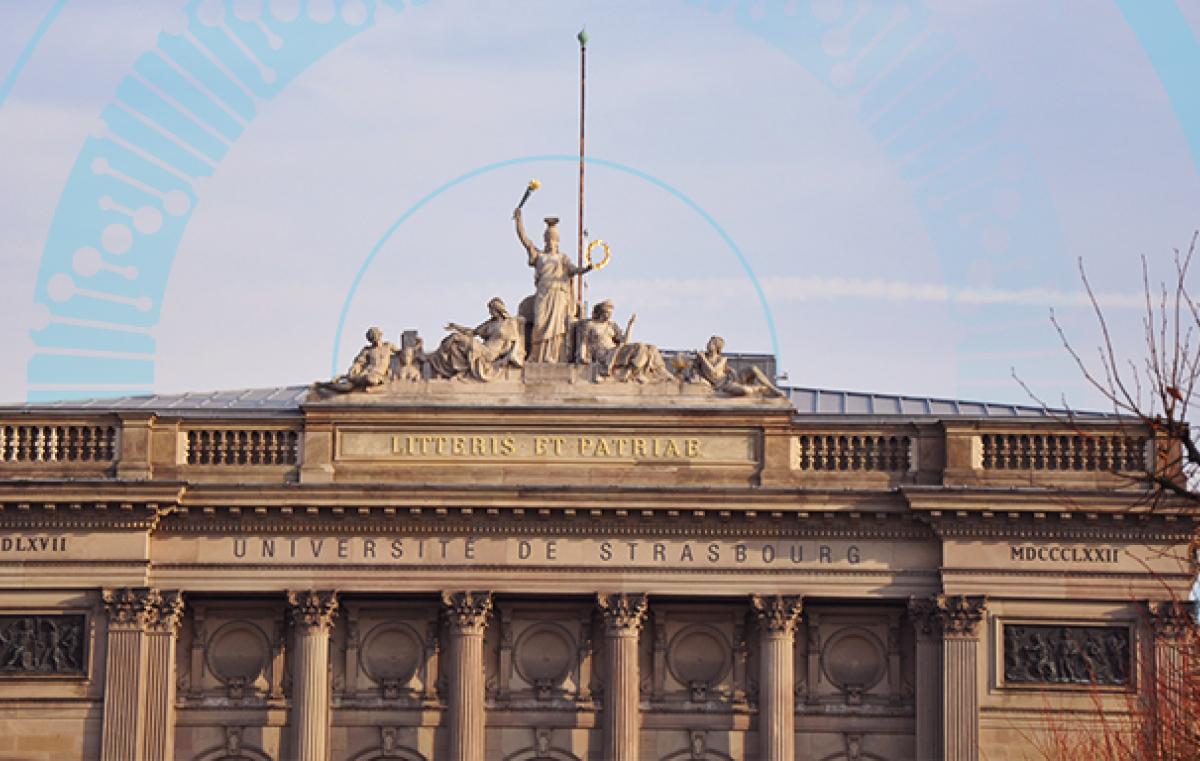€4.5m EU Erasmus+ Grant
Bar-Ilan part of consortium of European universities to win grant for Erasmus Mundus Joint MSc in Chemoinformatics

A consortium of ten universities – nine in Europe and Bar-Ilan University in Israel – has won the EU’s highly sought-after Erasmus Mundus Joint Master Degree (EMJMD) grant, which is valued at more than €4.5m. Funded by the EU, the grant will be spread over a six-year period, providing scholarships to hundreds of students from all over Europe and Israel for the international program. This is the first time since 2018 that an Israeli university has been included as a full partner in an EMJMD grant.
The EMJMD grant will enable the partner universities to offer scholarships to exceptional candidates who apply for the joint MSc in Chemoinformatics through their home universities. EU scholarships cover the cost of a student’s participation in the program, travel, and a living allowance.
"This is an important development for fields like sustainability, energy, and drugs and materials design, where the connection between chemistry and artificial intelligence can have a powerful effect on our lives,” said Bar-Ilan University President Prof. Arie Zaban.
“Chemoinformatics can help environmental researchers find less polluting, less toxic chemicals, replace the chemical processes that are currently used, or develop more efficient systems for energy conversion, storage, and use. It can also help medical researchers develop new, efficient drugs for disease with few or no side effects,” Prof. Zaban added.
An Erasmus Mundus Joint Master is a prestigious, integrated, international study program, jointly designed and delivered by an international consortium of higher education institutions from different countries worldwide. It is funded by Erasmus+, the EU's program that supports education, training, youth, and sport in Europe.
“Being part of the consortium that has won this remarkable grant is an honor for Bar-Ilan University,” said University Deputy President Prof. Moshe Lewenstein. “Our partners are all top universities in their respective countries, and we feel privileged to be one of them. We are excited to be able to offer scholarships for such a unique joint degree to our deserving students.”
The ten universities comprising the consortium include the University of Strasbourg (France), which will manage the program and the funding; Bar-Ilan University, which was key in forming the grant proposal with the University of Strasbourg; the University of Paris (France); the University NOVA of Lisbon (Portugal); the University of Milan (Italy); the University of Ljubljana (Slovenia); the Taras Shevchenko National University of Kyiv (Ukraine); the Kazan Federal University (Russia), the University of Vienna (Austria), and Azerbaijan State Oil and Industry University (Azerbaijan).
Bar-Ilan University’s participation in winning this grant is the result of over four years of efforts to promote the field of Chemoinformatics within its Department of Chemistry. These efforts began with the establishment of a Data Science track within the BSc degree and an internal MSc degree in Chemoinformatics, and culminated in the establishment of a joint MSc degree in Chemoinformatics with the University of Strasbourg (Unistra) in June 2021, the first collaboration for a joint MSc in Chemoinformatics between an Israeli and European university.
“Bar-Ilan's Department of Chemistry was the first to create a Data Science track and is the only university in Israel that currently offers a Master’s degree in Chemoinformatics,” said Prof. Hanoch Senderowitz, former Chairman of the Department, who conceived the idea to establish the joint program with Prof. Alexandre Varnek from Unistra.
“Bar-Ilan’s International School, in particular Daniel Schuval, Director of Academic Partnerships and Projects, and Dr. Oren Glickman, Scientific Manager of Bar-Ilan’s newly-established Data Science Institute (DSI), played a key role in facilitating the new partnership and helping us to win the grant,” added Senderowitz.
Students in the joint degree program spend their first year at their home university and the second at Unistra. Unistra students can choose from any of the other nine universities to spend their second year. The degree program is taught entirely in English.
Chemoinformatics is a rapidly-evolving field at the intersection of chemistry and computer science. It concerns the application of informatics methods to solve chemistry-related problems and its specific methods have become an essential part of the development of new compounds, materials, and processes. The Master’s degree in Chemoinformatics aims to train specialists for the Chemical and Pharmaceutical industries, with strong skills in chemistry, basic computer science, and specific Chemoinformatics methods.